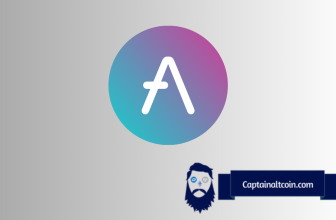
Raising money via an ICO was much easier task in 2017, than in this year. ICO funding fell dramatically during last month to levels not seen since 8 months, or August, 2017. During April, just $543.3 million, was raised through token sales, according to a survey by ICOData.io.

The most likely reason for this, aside of broader market correction that hit cryptocurrency industry is looming regulation in US and other big countries.Initial Coin Offerings (ICOs) have become somewhat controversial with governments entering the space with regulation plans and mainstream media warning of their fraudulent nature and risks they carry.

Legislation, particularly in the United States, is one of the biggest threats facing ICOs. The head of the Commodity Futures Trading Commission (CFTC) told Congress in February that every ICO was considered a security. He reiterated that claim last week before the U.S. House of Representatives Committee on Appropriations, where he said there wasn’t a single ICO that didn’t meet the criteria for a security. This is worrisome especially for ETH and similar platforms that base their business model on launching ICOs (at least their current use is only as ICO launch platforms or playing pointless games like Cryptokitties).
Important to note here, there are more ICOs in 2018 than ever before with a lower average payout. We are already at 75 percent of the total number of ICOs the previous year, in the first four months of this year already.
ICO skeptics are quick to point out the fact that almost half of the started projects managed to fail even before the actual fundraising campaign ended.
If we include “semi-failed” projects, the failure rate surges to staggering 59%.
Given the hype and speculation associated with this new kind of crowdfunding, this may be a temporary fall before another meteoric rise in interest and collected funds. Some experts will claim the ICOs are losing their appeal, mainly because there are too many similar projects. Most of those concepts do not have a working products months after raising millions of dollars. Heck, some of them don’t even have a complete whitepaper that theorizes on what they wish to build. To top it all off, almost one in two projects failed before of after funding, which is not a positive indicator.







